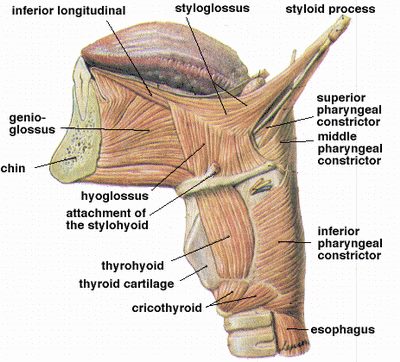Blog
SILENT RELUX CAUSES VOICE PROBLEM FOR SINGERS
I have suffered from silent reflux and it truly affects singing. Many of my college students have silent reflux, so this is not just an older person’s disease. Silent reflux is acid reflux that does not represent with symptoms of a sour mouth or feeling of acid in the esophagus. Instead the singer or speaker wakes up with a husky, scratchy voice and it takes time for the voice to warm-up. Singers are prone to acid reflux because of the extra activity of the diaphragm and abdominals we engage for support. Normally, the diaphragm helps keep acid in our stomach. It separates the abdominal cavity form the respiratory cavity. But acid can move up into your esophagus, which may cause obvious or often what we call “silent” symptoms of acid reflux disease. There is a hole in the diaphragm to allow the esophagus to go through it. It is called the esophageal sphincter, which is a tight ring and is normally well sealed. But under certain lifestyle conditions it can allow acid to float backwards up the esophagus and spill over into the vocal cords during sleep. This irritates the vocal cords, causing swelling and vocal problems. Singers are also more prone to hiatal hernias, which is when a little bit of the stomach lining pops through the esophageal sphincter making reflux much easier. The most common prescriptions are medications that block or reduce acid production. The only problem with these is that they also weaken our bones, so I prefer natural methods for the treatment of reflux. Voice teachers have had success with DGL (deglycyrrhizinated licorice). Dr Weill recommends to “Slowly chew two tablets or take a half-teaspoon of the powder before or between meals and at bedtime. Taper your dose down after your symptoms are under control.” According to Dr. Weill, Slippery elm is also good to heal irritated digestive tract tissues.
CAUSES OF ACID REFLUX (GERD)
Being overweight.
Smoking. Long term smokers are 70% more likely to suffer from acid reflux disease and smoking is a big no, no for singers.
Excessive coughing can affect the closure of the esophageal sphincter.
Spicy and fatty food. Carbonated beverages and soft drinks are a huge culprit. Alcohol. Citrus, tomatoes (spaghetti sauce, salsa, chili, and pizza). Peppermint. Coffee and black tea. Snacking before bed. Garlic and Onions. Junk food.
Taking aspirin, ibuprofen, certain muscle relaxers, or blood pressure medications antibiotics, antidepressants, calcium channel blockers, opioid pain relievers like codeine and hydrocodone, osteoporosis drugs, sedatives and tranquilizers as well as over-the-counter pain relievers and supplements such as iron, potassium, and vitamin C can contribute to reflux. Studies have shown that 50% of people who take Valium and Xanax are more prone to reflux.
One of the most common problems is eating before bed. Do not lie down right after you eat. Do not eat or drink alcohol four hours before you sleep.
NATURAL TREATMENT
Eat a healthy diet. People who eat whole grain breads have half the risk of GERD compared to people who eat white bread. Fiber seems to soak up nitric oxide that can cause reflux. People who eat more fruits, vegetables, whole grains, and beans are less likely to have signs of erosion of the esophagus than those who ate more fat, protein, and calories.
If you have a chronic reflux problem, raise the head of your bead 4 inches by putting blocks under the head of the bed. Do not use pillows to just raise the head, it makes it worse.
Try natural remedies: Voice teachers have had success with DGL (deglycyrrhizinated licorice). Dr Weill recommends to “Slowly chew two tablets or take a half-teaspoon of the powder before or between meals and at bedtime. Taper your dose down after your symptoms are under control.” According to Dr. Weill, Slippery elm is also good to heal irritated digestive tract tissues.
MORE ON DGL:
According to Julie Chen M.D. in the Huffington Post
“One main reason I use DGL in my patients is for gastrointestinal issues. In my clinical experience, patients who have heartburn, peptic ulcer disease, or gastritis find great relief from DGL. There was a study published in the British Medical Journalcomparing an over-the-counter medication for peptic ulcer disease and DGL for 82 patients who had endoscopically healed peptic ulcer. Patients were given two tablets of DGL twice daily compared to a regular dosage of the over-the-counter medication for peptic ulcer disease. After two years on this regimen, the recurrence rate for gastric ulcers for the two groups was relatively similar. However, after both groups went off the medication or DGL, the recurrence of peptic ulcers occurred.
This study demonstrates DGL as an effective potential alternative to taking over-the-counter stomach ulcer medications if you have any concerns about these medications.
The general dosage to use of DGL is about one to three tablets of DGL at a dosage of 380-400 mg per tablet. You would take it about 30 minutes before each meal to help your stomach upset issues. On the bottle, you should make sure that there is less than 1 to 2 percent glycyrrhizin in the tablet to make sure that majority of the concerning component is out of the tablets so that you can more safely use this long-term.”
http://www.huffingtonpost.com/julie-chen-md/dgl-supplements_b_2976260.html




